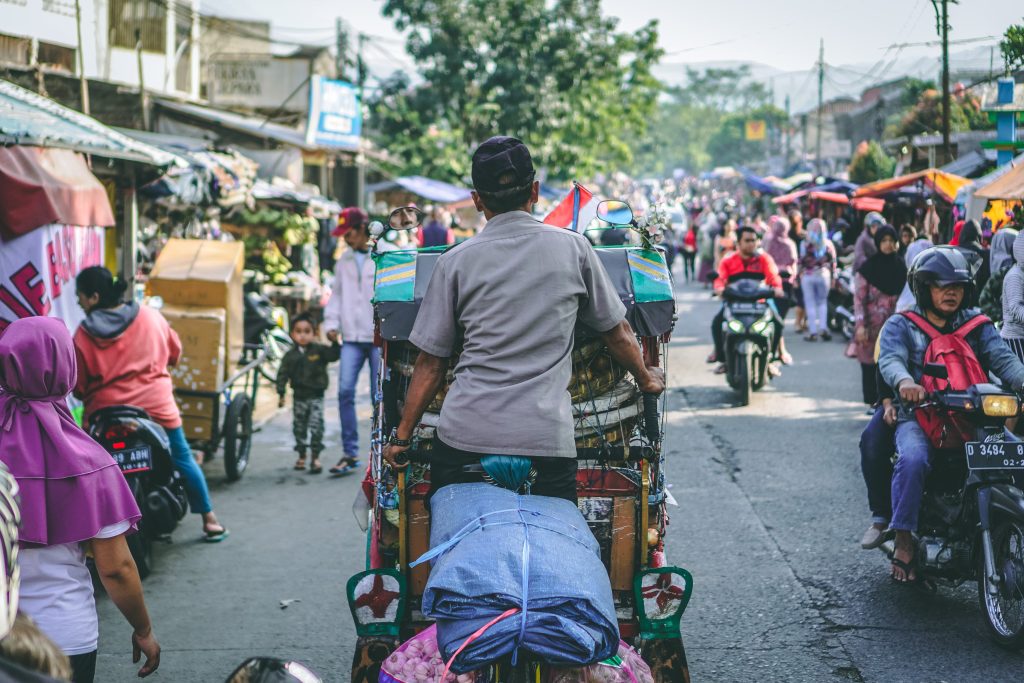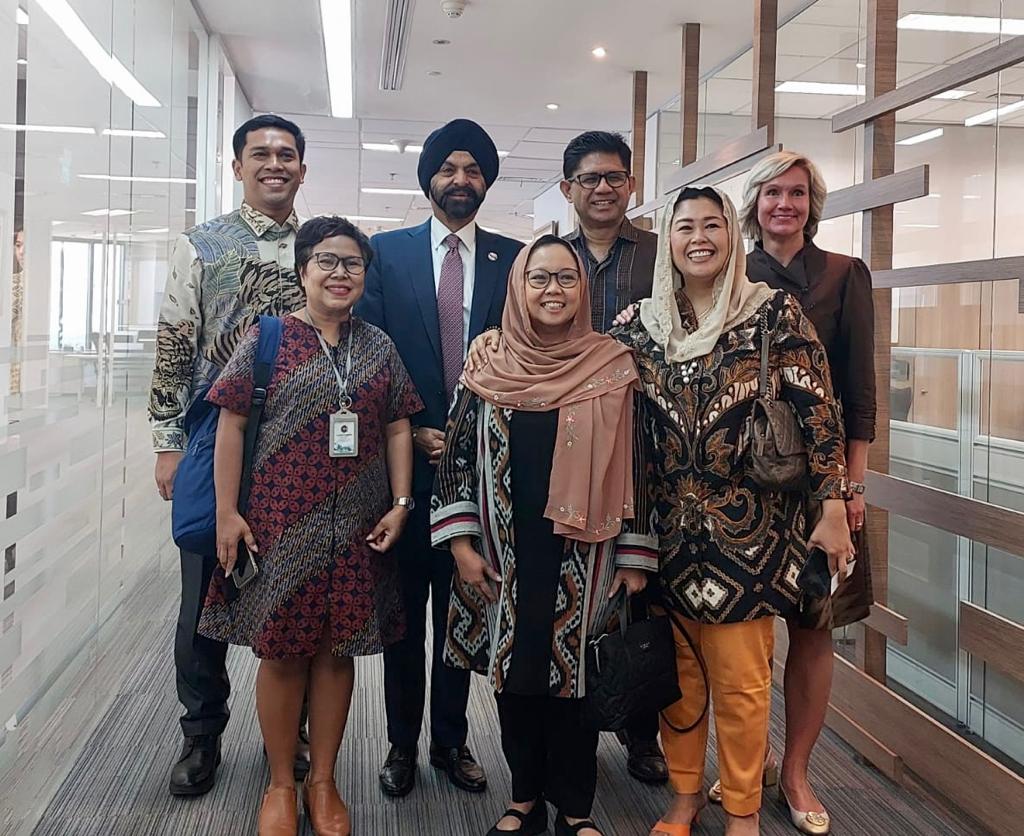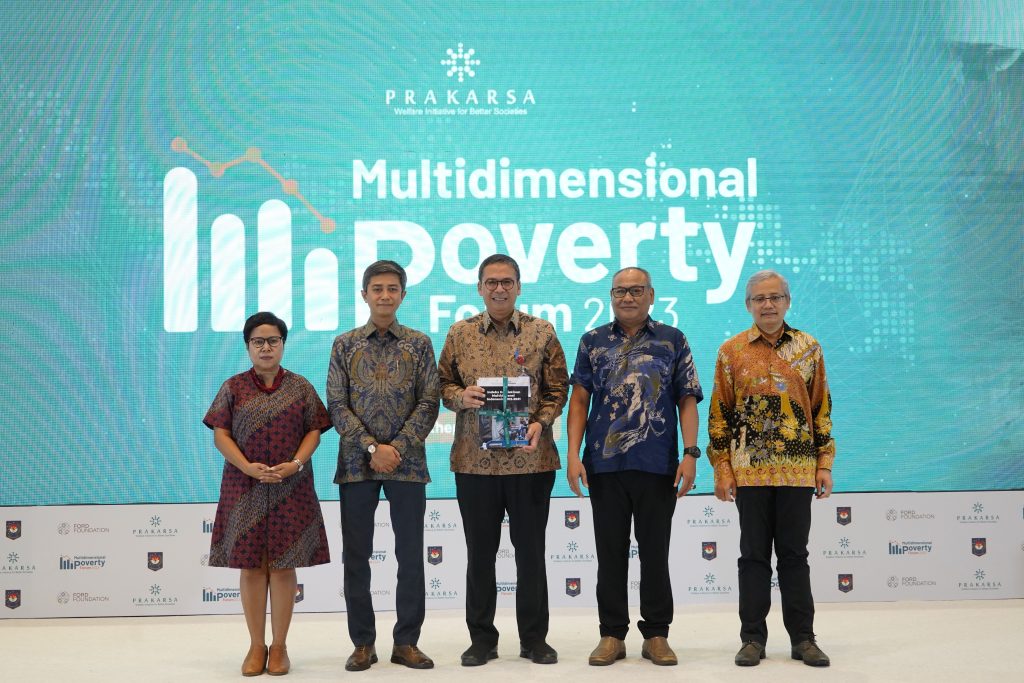
Jakarta, The PRAKARSA - In August 2023, the Public Policy Research and Advocacy Institute The PRAKARSA launch a report Multidimensional Poverty Index (IKM) in Indonesia 2012-2021. The results of SME measurements show a decrease in the number of multidimensional poor people of around 80 million people, from 120,1 million people in 2012, down to 38,95 million people in 2021. Taking place at The Sultan Hotel Jakarta on Wednesday, August 9 2023.
According to the Executive Director PRAKARSA, Ah Maftuchan, IKM studies can provide an in-depth explanation of how and in what context someone becomes poor. "In this way, we will be able to answer the classic question 'who is poor?' said Maftuchan, Wednesday (9/8/2023).
According to him, Indonesia needs to immediately adopt a multidimensional poverty approach so that the government can see poverty more objectively and can determine more effective and impactful poverty reduction policy interventions. "The IKM study that we have carried out is part of our campaign with the hope that in the future IKM will be used as an official government approach in carrying out interventions to reduce poverty in Indonesia," explained Maftuchan.
The IKM report received a good response from various parties, especially local governments who admitted that they had been helped by the results of this study. Because apart from photographing poverty nationally, this IKM study also includes a portrait of multidimensional poverty at the provincial level.
Head of Regional Development, Research and Innovation Policy (BRIDA) for Central Java Province, Edi Wahyono, during a visit to the office PRAKARSA expressed his appreciation and explained that the IKM study could help local governments to determine poverty alleviation policies. "SMI research at the provincial level is very useful for helping local governments in determining budget priorities, planning policies that are right on target, and achieving SDGs at the district/city level," explained Edi, Monday (4/9/2023).
Apart from that, the same thing also came from the North Kalimantan regional government, through an official letter from Plt. Head of the Regional Development Planning and Research Development Agency for North Kalimantan, Bertius, expressed his appreciation for the IKM study that had been carried out PRAKARSA (15 / 12 / 2023).
"The IKM documents will be very useful and serve as a reference for government policies and programs, especially in preparing planning documents for handling multidimensional poverty in the regions," wrote Bertius.
Meanwhile, Professor Hilman Latief, General Treasurer of the Muhammadiyah Central Leadership said that the IKM study carried out by PRAKARSA has provided a comprehensive understanding of how poverty should be translated and clearly defined.
Hilman explained that currently Muhammadiyah still has a big task regarding how the organization should view and define poverty. Because after all, Muhammadiyah, through existing amil zakat institutions, has a role in the process of poverty alleviation. According to him, IKM is the definition of poverty that has been sought and seems to match what Muhammadiyah will formulate.
"In the context of the Muhamadiyah Association, we still have the big task of defining and measuring what we actually mean by poverty, with what indicators and what intervention models," he said, when he was the Keynote Speaker in a reflective discussion event entitled "Poverty and Inequality in Indonesia: What is the Role of Zakat Institutions?” which was organized by the Muhammadiyah Amil Zakat Infaq and Alms Institution (LazisMu). On Friday (29/12/2023).
On the same occasion, Program Manager PRAKARSA, Herni Ramdlaningrum explained that poverty is a multidimensional phenomenon. SMEs reflect the deprivation of capabilities experienced by poor communities, such as education, health and living standards. IKM aims to portray poverty conditions more holistically. This is not in order to eliminate poverty measurement using a monetary approach, but to provide a broader and measurable view in reducing all aspects of poverty.
“The SMI measurement approach analyzes the dimensions of many things. The concept of multidimensional poverty offers an in-depth analysis of poverty situations. "Because it is not single, it means there are many situations or multidimensional," concluded Herni.
PRAKARSA also continues to support the government at the provincial level to adopt a multidimensional poverty measurement approach. Currently, one of the Provincial Governments that has started to adopt this approach is the DKI Jakarta Provincial Government to eradicate extreme poverty in Jakarta.



